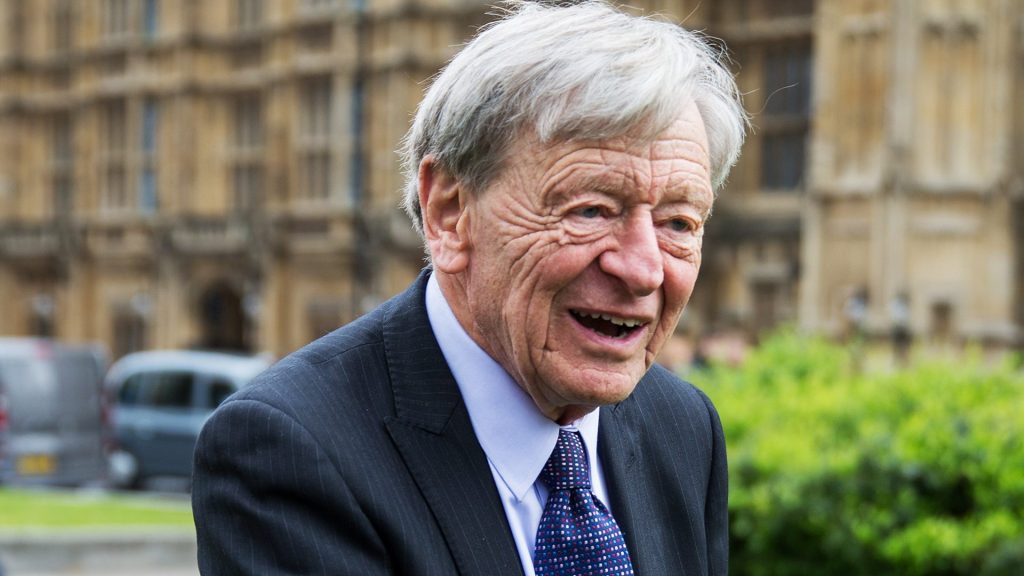The following was released today from Lambeth Palace following the announcement that the Dubs Amendment to the U.K.’s Immigration Act 2016, an amendment spearheaded by Holocaust survivor Lord Alf Dubs and passed just last year.
From the BBC:
The amendment to the Immigration Act 2016 required the home secretary to bring a specified number of unaccompanied refugee children to the UK after consultation with local authorities. While there was no target number written into the legislation Lord Dubs and his supporters had suggested the UK could help 3,000 of the most vulnerable.
In Wednesday’s statement, Immigration Minister Robert Goodwill said 200 had already arrived and a further 150 children would follow before the end of March, filling the available places offered by local authorities.
A further 700 unaccompanied children had arrived in the UK under separate EU-wide rules designed to reunite families.
Separately, the UK has settled 4,400 individuals directly from Middle East camps under an international programme to help displaced Syrians, half of whom are children.
Responding to the decision, Lord Dubs said: “Britain has a proud history of welcoming refugees. At a time when Donald Trump is banning refugees from America, it would be shameful if the UK followed suit by closing down this route to sanctuary for unaccompanied children just months after it was opened.”
According to The Independent, Lord Dubs was not aware that the amendment would be canceled until it was announced as such:
Just hours before the final vote on the triggering of Article 50, the government announced it would allow only 350 unaccompanied asylum seeking children to come to the UK under the scheme which was expected to help thousands, in a statement that Lord Dubs described as “confusing” and “hidden”.
“It’s been sandwiched between PMQs and all these votes on Brexit – what a way of hiding an announcement,” he said, telling the Independent he had not been notified of the decision to end his amendment in advance, and believed the government had tried to sneak it through without anyone noticing.
He added that he had never heard the 350 children figure before. “Up to lunch time [on Wednesday] I was under the impression there was no cap,” he said.
The statement from Immigration Minister Robert Goodwill said local authorities indicated they “have capacity for around 400 unaccompanied asylum-seeking children until the end of this financial year” — 50 of those spaces have been allocated for delayed family reunion cases — and said the country should be “proud” of its contribution to finding homes for refugees.
But the new cap on Dubs children is thousands short of the figure suggested by government sources last year, and nobody outside of the Home Office had heard it before the shock statement on Wednesday.
The Archbishop’s statement, which can also be found online here:
I was saddened and shocked to read in the Ministerial statement released yesterday that only 350 children will be received under the regulations in the Dubs Amendment. Our country has a great history of welcoming those in need, particularly the most vulnerable, such as unaccompanied children.
Refugees, like all people, are treasured human beings made in the image of God who deserve safety, freedom and the opportunity to flourish. Jesus commands us to care for the most vulnerable among us:
“The King will reply, ‘Truly I tell you, whatever you did for one of the least of these brothers and sisters of mine, you did for me.’” (Matthew 25:40).
The Government’s decision last year to take in vulnerable children was the right thing to do and was further evidence of the UK’s leadership on the response to the Syrian and wider migration crisis. Our Government’s leadership on financial and technical support in the region, and its leadership in resettling refugees from UNHCR camps is to be commended. However, I fear that this week’s decision does not meet the spirit of the commitment that was given during the passage of the Immigration Act last year.
I agree entirely with colleagues who have spoken out on this already that for those of us who supported the Dubs amendment, we believed that the Government was committed to welcoming up to 3000 children under this scheme. To end the scheme now, when such a small proportion have actually entered the country, is regrettable. Local authorities, who are bearing the costs of the resettlement, must be given the resources and time needed to meet our original commitment.
On Tuesday, I was in Istanbul to co-sponsor a Forum on modern slavery and trafficking. During the event, we heard about the clear and terrible link between the large-scale movement of refugees and the risk of trafficking. Providing safe passage for unaccompanied children already in Europe, into caring and loving homes – in some cases through Christian groups such as the excellent Home for Good – is a clear and tangible way in which we as a country can demonstrate our values of protecting the vulnerable and welcoming the stranger.
We must resist and turn back the worrying trends we are seeing around the world, towards seeing the movement of desperate people as more of a threat to identity and security than an opportunity to do our duty. We cannot withdraw from our long and proud history of helping the most vulnerable.
I very much hope that the Government will reconsider this decision, and work with church groups and others to find a sustainable and compassionate solution that allows those most in need to find sanctuary in our country.
Photo: Lord Dubs, from the BBC

